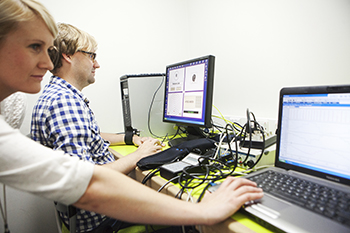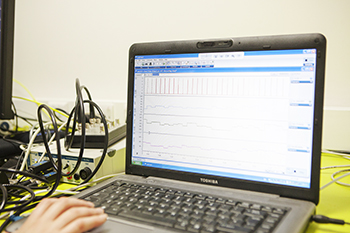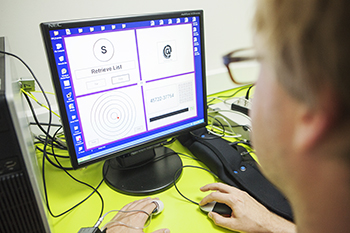-
Study
-
Quick Links
- Course Search
- Fees and Funding
- Unlock Your Potential
- Still time to Apply
- Higher and Degree Apprenticeships
- Continuing Professional Development
- Still time to apply
-
Undergraduate
- UCAS Clearing & Confirmation 2025
- Application Guides
- UCAS Exhibitions
- Foundation Years
- School & College Outreach
- Information for Parents
-
Postgraduate
- Application Guide
- Postgraduate Research Degrees
- Flexible Learning
- Change Direction
- Register your Interest
-
-
International
International
Northumbria’s global footprint touches every continent across the world, through our global partnerships across 17 institutions in 10 countries, to our 277,000 strong alumni community and 150 recruitment partners – we prepare our students for the challenges of tomorrow. Discover more about how to join Northumbria’s global family or our partnerships.
View our Global Footprint-
Quick Links
- Course Search
- Undergraduate Study
- Postgraduate Study
- Information for Parents
- London Campus
- Northumbria Pathway
- Cost of Living
- Sign up for Information
-
International Students
- Information for Students
- International Events
- Application Guide
- Entry Requirements and Education Country Agents
- Global Offices
- English Requirements
- English Language Centre
- International student support
- Cost of Living
-
International Fees and Funding
- International Undergraduate Fees
- International Undergraduate Funding
- International Masters Fees
- International Masters Funding
- International Postgraduate Research Fees
- International Postgraduate Research Funding
-
International Partners
- Agent and Representatives Network
- Global Partnerships
- Global Community
-
International Mobility
- Information for Northumbria Students
- Information for Incoming Exchange Students
-
-
Business
Business
The world is changing faster than ever before. The future is there to be won by organisations who find ways to turn today's possibilities into tomorrows competitive edge. In a connected world, collaboration can be the key to success.
More on our Business Services -
Research
Research
Northumbria is a research-rich, business-focused, professional university with a global reputation for academic quality. We conduct ground-breaking research that is responsive to the science & technology, health & well being, economic and social and arts & cultural needs for the communities
Discover more about our Research-
Quick Links
- Research Peaks of Excellence
- Academic Departments
- Research Staff
- Postgraduate Research Studentships
- Research Events
-
Research at Northumbria
- Interdisciplinary Research Themes
- Research Impact
- REF
- Partners and Collaborators
-
Support for Researchers
- Research and Innovation Services Staff
- Researcher Development and Training
- Research Ethics and Integrity
- University Library - Open Access
- Vice Chancellors Fellows
-
Research Degrees
- Postgraduate Research Overview
- Doctoral Training Partnerships and Centres
- Academic Departments
-
Research Culture
- Research Culture
- Research Culture Action Plan
- Concordats and Commitments
-
-
About Us
-
About Northumbria
- Our Strategy
- Our Staff
- Place and Partnerships
- Leadership & Governance
- Academic Departments
- University Services
- History of Northumbria
- Contact us
- Online Shop
-
-
Alumni
Alumni
Northumbria University is renowned for the calibre of its business-ready graduates. Our alumni network has over 246,000 graduates based in 178 countries worldwide in a range of sectors, our alumni are making a real impact on the world.
Our Alumni - Work For Us
What will I learn on this module?
You will gain an insight into the inter-individual (e.g. personality, intelligence, illness perceptions) and cultural influences on physical health and wellbeing from a lifespan perspective. Topics will be introduced and discussed in context of psychological and physiological disorders that manifest at different stages of the lifespan (e.g. obesity, dementia, cardiovascular disease, diabetes, sexually transmitted infection etc.).
Theories such as ‘Developmental Origins of Health and Disease’, which implicate early life psychosocial factors as predictors of later life health and wellbeing, will be critically discussed. You will also learn that the pathways from individual and cultural factors to health and illness are complex, and involve a number of mediating and moderating factors.
How will I learn on this module?
You will learn by participating in interactive lectures designed to provide breadth of conceptual knowledge across topics relating to lifespan, inter-individual and cultural perspectives on health psychology. Some lectures will be delivered by an external guest, where appropriate, in line with their expertise to enhance your learning. Seminars, in a journal club format, will enable more in depth discussion of specific aspects
of the module. You will be required to lead and participate in critical discussions of key contemporary research papers relating to the lecture content. This experiential aspect of the module will provide you with skills in critiquing research literature, which will form the basis of the module assessment. The assessment will require you to critically evaluate and synthesise a body of literature, via a systematic review, which will enable you to develop advanced skills in literature synthesis, critical evaluation and theory development. With respect to employability, these skills are essential to your development in careers relating to Health Psychology.
How will I be supported academically on this module?
Resources will be available via the e-learning portal, including lecture slides, related supplementary materials, recommended and required readings. You will receive feedback from academic staff via discussion boards, seminars and tutorials. Materials will be provided to enable
you to explore a range of potential graduate employment pathways, self-employment and further study options. Further, information will be provided about online resources and local seminars and events related to the module content which will further enhance your learning and experience.
What will I be expected to read on this module?
All modules at Northumbria include a range of reading materials that students are expected to engage with. Online reading lists (provided after enrolment) give you access to your reading material for your modules. The Library works in partnership with your module tutors to ensure you have access to the material that you need.
What will I be expected to achieve?
Knowledge & Understanding:
1. Critically evaluate and debate current knowledge, theory and evidence relevant to our understanding of how inter-individual and lifestyle factors influence health and wellbeing across the lifespan.
2. Understand how evidence from empirical Health Psychology research can be applied to the development of models and theories to advance the discipline of Health Psychology.
Intellectual / Professional skills & abilities:
1. Communicate effectively and disseminate information.
Personal Values Attributes:
1. Demonstrate curiosity and evidence of independent thinking to develop novel ideas.
How will I be assessed?
Formative assessment:
Formative assessment takes place within the ‘journal club’ seminars. You will present and lead discussions based on a research critique of a contemporary empirical paper related to the module content. Informal feedback will be provided by staff and students.
Summative assessment:
The module assessment (100% of module mark) comprises a 4,000 word systematic literature review, which you will use to synthesise and critique a diverse literature base which will provide the opportunity for you to demonstrate your achievement of learning outcomes KU1, KU2, IPSA1 and PVA1.
Pre-requisite(s)
N/A
Co-requisite(s)
N/A
Module abstract
The aim of this module is to enable you to develop an insight into the developmental, inter-individual and cultural influences on physical health and wellbeing. The module is taught from a lifespan perspective, in that topics will be introduced and discussed in context of illnesses that manifest at different stages of the lifespan (e.g. obesity, dementia, cardiovascular disease, diabetes, sexually transmitted infection, etc.). This module will encourage you to critically evaluate the literature to develop an understanding of the complex pathways from inter-individual differences (e.g. intelligence, personality, illness perceptions, and sociocultural factors) to health and disease. In addition to interactive
lectures, seminars will follow a student-led ‘journal club’ format, which will enable you to develop skills in critically evaluating Health Psychology research. You will use these skills to synthesise and critically evaluate the research literature via a systematic review in the summative assessment. With respect to employability, these skills are essential to your development in careers relating to Health
Psychology.
Course info
Credits 20
Level of Study Postgraduate
Mode of Study 2 years Part Time
1 other options available
Department Psychology
Location City Campus, Northumbria University
City Newcastle
Start September 2025
All information is accurate at the time of sharing.
Full time Courses are primarily delivered via on-campus face to face learning but could include elements of online learning. Most courses run as planned and as promoted on our website and via our marketing materials, but if there are any substantial changes (as determined by the Competition and Markets Authority) to a course or there is the potential that course may be withdrawn, we will notify all affected applicants as soon as possible with advice and guidance regarding their options. It is also important to be aware that optional modules listed on course pages may be subject to change depending on uptake numbers each year.
Contact time is subject to increase or decrease in line with possible restrictions imposed by the government or the University in the interest of maintaining the health and safety and wellbeing of students, staff, and visitors if this is deemed necessary in future.
Useful Links
Find out about our distinctive approach at
www.northumbria.ac.uk/exp
Admissions Terms and Conditions
northumbria.ac.uk/terms
Fees and Funding
northumbria.ac.uk/fees
Admissions Policy
northumbria.ac.uk/adpolicy
Admissions Complaints Policy
northumbria.ac.uk/complaints









.png?modified=20250630105204)






